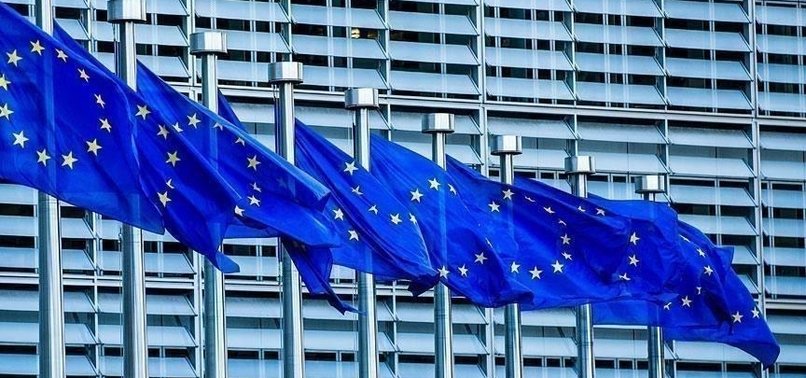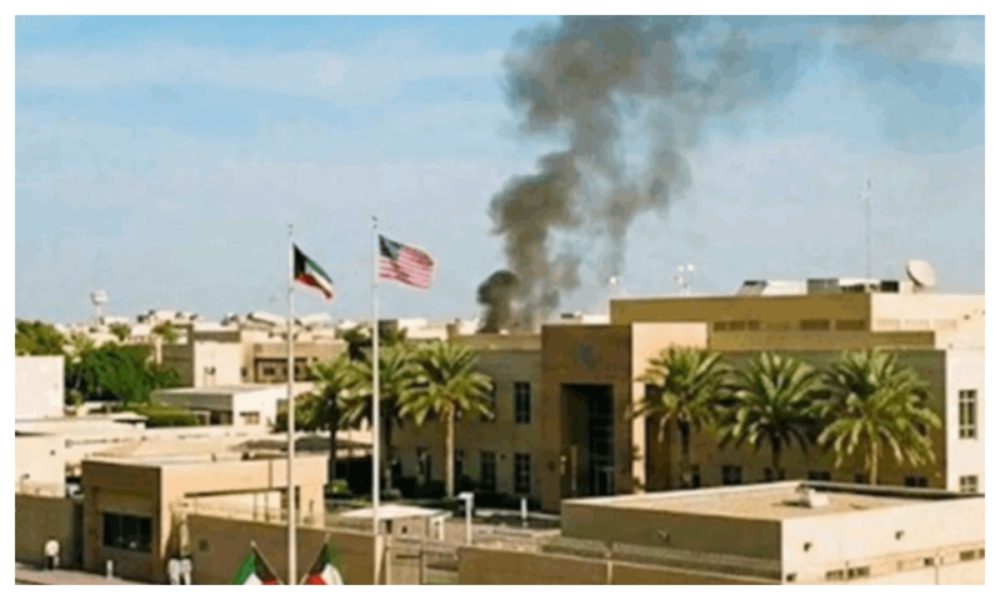News In Diaspora
European Union New Sanctions Target Russian , Banks, Energy

In furtherance of its support for Ukraine, the European Union Council has adopted the 19th package of sanctions against Russia, targeting energy, finance, and the military industrial complex.
The Council, which is also firming control over the movement of Russian diplomats across the EU, imposed further measures on Belarus to restrict its support for the Russian war.
The EU said the latest package follows Russia’s escalating aggression against Ukraine, particularly the recent strikes on civilian infrastructure, including energy, water, and health facilities.
On Thursday, the regional alliance decried how the attacks have inflicted severe suffering on the civilian population and condemned Moscow’s “unwillingness to pursue peace.”
Kaja Kallas, High Representative for Foreign Affairs and Security Policy, said the new action targets Russian energy, banks, crypto exchanges, and entities in China, among others.
“It is becoming increasingly difficult for Putin to finance his war,” she noted. “Every euro we deny Russia is one it cannot spend on war. The 19th package will not be the last.”
The package tightens the embargo on Russia’s Rosneft, Gazprom Neft, and bars Russian gas imports, starting January 2027 for long-term contracts and within six months for short-term contracts.
To further constrain Russia’s revenue sources, the EU has listed the nation’s largest gold producer and designated an additional 117 vessels, bringing the total number to 557.
Also affected is a Tatarstani conglomerate active in the Russian oil sector, as well as Chinese entities – two refineries and an oil trader – that are significant buyers of Russian crude oil.
Equally listed is Litasco, Lukoil’s shadow fleet based in the UAE, the largest port container operator in the Russian Far East, and a leading shipbuilder for Sovcomflot.
To curb Russia’s increasing use of crypto, the EU has sanctioned stablecoin A7A5, the developer, the Kyrgyz issuer, and the operator of a platform where high volumes of A7A5 are traded.
Furthermore, five more Russian banks, plus eight banks and oil traders from Tajikistan, Kyrgyzstan, the UAE, and Hong Kong, are subject to a transaction prohibition.
The EU has also banned the Russian National Payment Card System and scores of entities enabling Moscow’s access to computer numerical control machine tools, microelectronics, and UAVs.
In response to the forcible deportation of nearly 20,000 Ukrainian children to Russia or occupied territories, 11 additional individuals responsible for the abduction have been blacklisted.
News In Diaspora
United States Embassy in Kawait Closes Operation

The United States Embassy in Kuwait has suspended its operations “until further notice” amid escalating tensions across the Middle East.
In an official security alert issued on Tuesday, the embassy confirmed the temporary closure and the cancellation of all scheduled appointments.
“Security Alert: U.S. Embassy Kuwait Closure.
“Due to ongoing regional tensions, the U.S. Embassy in Kuwait will be closed until further notice.
“We have canceled all regular and emergency consular appointments. We will communicate when the embassy returns to normal operations,” the notice read.
The embassy did not specify a timeline for reopening but assured that updates would be provided as the situation evolves.
DAILY POST recalls that the closure follows days of intensified military activity and reported casualties in the region.
According to U.S. military sources, six American troops were killed during recent incidents in Kuwait.
In addition, three U.S. fighter jets crashed in what officials described as an “apparent friendly fire incident.”
Breaking News
BREAKING NEWS: Ghana Crack Down on Prostitution Ring, Arrest Twelve Nigerians

Operatives of the New Juaben South Municipal Police Command in Koforidua, Eastern Region of Ghana, have arrested 13 suspected commercial sex workers—12 Nigerians and one Ghanaian—during a special operation targeting prostitution and human trafficking.
Police also apprehended two additional suspects: a landlord accused of providing accommodation for the activities and a bouncer allegedly linked to the operation.
According to Modern Ghana, the arrests were carried out on Monday, February 10, 2026, following a complaint filed on February 6 by 30-year-old Nigerian woman Stella Godwill.
She told authorities she had been trafficked from Nigeria to Ghana by a woman identified as Christabel Simon Monday for prostitution.
According to the Municipal Police Commander, Superintendent Ransford Nsiah, the complainant alleged she was required to meet a daily earnings target of 400 Ghana cedis but could only raise 250 cedis on the day of the incident.
Police said about 15 suspects, aged between 15 and 31, are currently in custody and will be arraigned in court after investigations. Authorities confirmed that the minor among them has been separated for protection, while arrangements are being made with the Department of Social Welfare.
Assistant Superintendent of Police Augustine Kusi Asante, the Municipal Crime Officer, warned landlords against renting properties for illegal activities, noting that Section 277 of Ghana’s Criminal Offences Act, 1960, criminalises operating a brothel and prescribes penalties including fines or imprisonment.
The suspects, police said, have violated Sections 273, 274, and 277 of the Act, which prohibit prostitution, human trafficking, and brothel operations.
Police expressed concern over the involvement of minors in commercial sex activities and urged the public to provide information that could help dismantle trafficking networks and protect vulnerable persons.
Authorities said investigations are ongoing as part of broader efforts to curb trafficking and exploitation in the Eastern Region, where previous probes uncovered syndicates that allegedly lured young girls from Nigeria with promises of hospitality jobs before forcing them into prostitution.
-

 Breaking News2 months ago
Breaking News2 months agoBreaking News: Nigerian Air Force Reportedly Kills 750 Terrorists in Borno State
-

 Breaking News3 months ago
Breaking News3 months agoTerrorists Want ₦2m ‘levy’ in Katsina Community Despite Peaceful Agreement
-

 Breaking News4 months ago
Breaking News4 months agoEx-EFCC Exhibit Keeper Kaduna Zonal Directorate, Allegedly Steals ₦22m
-

 Breaking News5 months ago
Breaking News5 months agoNiger Delta Group hails Tinubu, NUPRC for ₦373bn host community fund and 536 life-changing projects
-

 News In Diaspora1 month ago
News In Diaspora1 month agoNigerian JTF Arrests Woman Supplying Drugs to Boko Haram
-

 Breaking News3 weeks ago
Breaking News3 weeks agoNew Young Players are Coming in Super Eagles – Ibrahim Gusau to Fans
-

 Business3 weeks ago
Business3 weeks agoBREAKING: No Fewer Than 28 Ships to deliver Petrol, other Commodities at Lagos Ports
-

 Breaking News3 weeks ago
Breaking News3 weeks agoEmergency: Arik Air Flight Landed at Benin Airport
